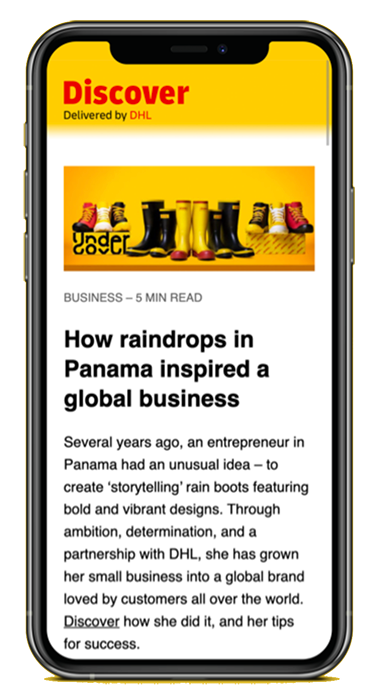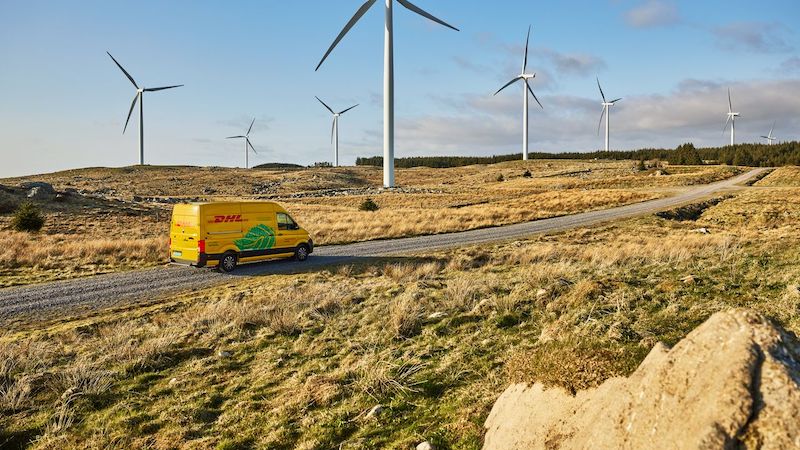Grow your business with the Discover newsletter
Logistics advice & insights straight to your inbox
Subscribe now
For a long time, e-commerce and environmental sustainability seemed mutually exclusive. One is driven by making the most revenue whilst still prioritising consumers’ needs, whereas the other prioritises environmental factors and shaping a “conscious consumer mindset” simultaneously. However, in recent years, the two concepts of e-commerce and sustainability have proven to be mutually reinforcing, especially since the end goal is driving efficiencies.
According to Statista, the global use of plastic packaging in e-commerce is expected to continue growing, with an estimated 4.5 billion pounds to be used by 2025. Unfortunately, this increase in plastic packaging will also result in a corresponding rise in plastic waste. And it is statistics like these that might have triggered companies to take action since online consumers become more environmentally conscious and concerned about overpackaging.
Other 2022 Statista reports on eco-conscious consumers around the world that may have triggered the rise of green consumerism include:
Over 70% of online shoppers in Vietnam choose to buy sustainable products often.
More than 50% of shoppers worldwide intend to avoid buying new goods to limit their contribution to climate change.
72% of online shoppers in Southeast Asia are more inclined to purchase eco-friendly products.
With the global e-commerce industry experiencing rapid growth in recent years, there is also an unprecedented surge in the environmental impact of these businesses. According to the 2022 Sustainability Trend Report, stakeholders, including consumers, continue to pressure companies to manage better high-profile supply chain issues such as deforestation and human rights. In the same vein, the scope of sustainable sourcing and supply chain management programmes have also expanded to accommodate issues like just and fair procurement.
To respond to these challenges whilst addressing the trends of eco-conscious consumers, one strategy that e-commerce businesses can focus on would be to localise their supply chains. Having production facilities and commercial hubs closer to where supply chain materials are sourced is one such sustainable way.
In addition to just producing eco-friendly products and establishing closer proximity to production facilities, green consumerism also calls for businesses to adopt other environmentally-friendly practices in areas such as sustainable packaging, delivery logistics, and manufacturing processes.
Packaging is often the first point of direct contact that your consumers will have with the product. Many brands use this as an opportunity to stand out of the crowd by designing unique packaging for their customers.
With traditional plastic packaging being frowned upon by eco-conscious consumers, e-commerce businesses are advised to invest in greener and most sustainable packaging options while they explore novel designs. These include:


Cornstarch packaging
Corrugated bubble wrap
Air pillows made from recycled content
Biodegradable packaging
Mushroom packaging
Green cell foam
Kraft paper
Cellulose packaging
Besides using sustainable packaging materials, e-commerce businesses can also optimise their packaging waste management. Many of us grew up with the terms “reduce, reuse, and recycle” in our vocabulary. These days, it is equally important for businesses to reflect those same values. For instance, using renewable or biodegradable packaging materials and reducing packaging waste to a minimum is a standard that brands must address if they wish to appeal to eco-conscious consumers. Not only will this help with the carbon offset, but it can also increase brand loyalty amongst many of your customers.

E-commerce companies can also weave sustainability concerns into their product design and manufacturing processes. This can include:
Using renewable energy sources or green energy. An example would be deriving electricity consumption from solar and wind power.
Choosing eco-friendly or low-impact, responsibly-sourced materials for production.
Having a commitment towards zero waste.
Designing and producing products for as much longevity as allowed, instead of single- or short-term-use products.
Eco-friendly products made through renewable energy sources, and sustainable practices are still not good enough. E-commerce businesses looking to succeed amidst the green consumerism movement should take it further and utilise environmentally-friendly logistics for shipping and return options.
At DHL Express, we recognise this gap and thus have come up with a solution for how e-commerce companies can further offset their carbon footprint whilst efficiently fulfilling their orders. This involves:
Eliminating emissions from transport and logistics through clean fuel and innovative technology.
Optimised efficiency of fleets, buildings, and transport networks to significantly reduce overall carbon emissions.
In-depth analysis of carbon reports provide valuable insights into how your current transportation and logistics operations impact the environment. This allows you to find ways to reduce emissions and plan more sustainable shipping routes.
As the pioneer of green logistics and a leading supplier of innovative solutions for sustainable supply chain systems, you can trust DHL Express to help you achieve your environmental goals. Partner with DHL Express for green logistics today and embark on a journey of green consumerism as we work towards a zero-carbon emission future together. Create a DHL Express account today to get started.